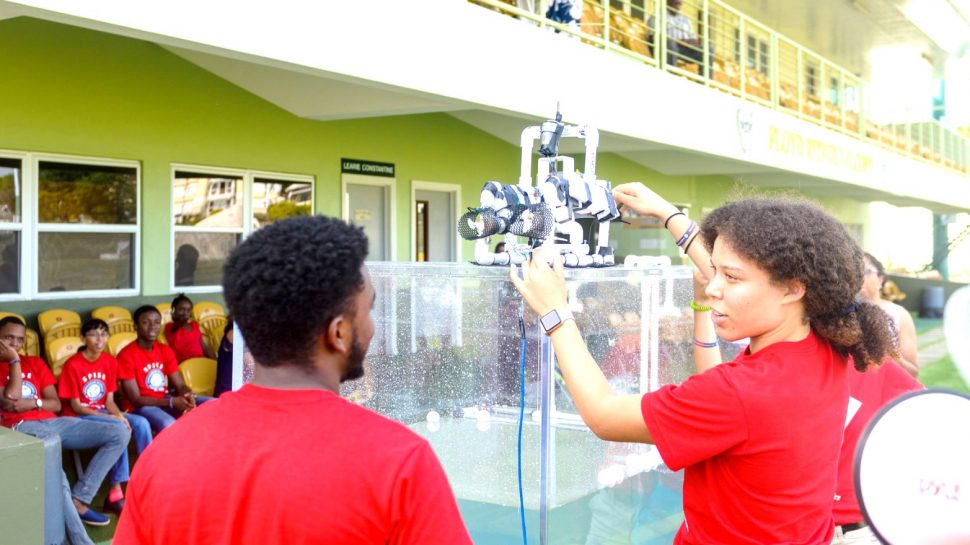Graduates from the Caribbean Science Foundation’s (CSF) science and engineering programme now number 152 since 2012 and 10 will begin studies at the Massa-chusetts Institute of Technology (MIT) this fall.
CSF, a non-profit organization promoting science and technology in the Caribbean, announced yesterday that more than 150 top science and math students from the Region – including Guyanese – have now graduated from its flagship programme, the Student Programme for Innovation in Science and Engineering (SPISE).
Aside from MIT, SPISE graduates are also attending many of the world’s other top universities including Harvard, Stanford, Princeton, Yale, Dartmouth, Columbia, University of Pennsylvania, University of Toronto, McMaster University and the University of the West Indies (UWI).
This year, 21 students ages 16-18 participated from eight Carib-bean countries – Antigua, Barbados, Grenada, Guyana, Jamaica, Martinique, St. Lucia, and St. Vincent. The annual four-week programme was held on the UWI – Cave Hill campus, and covered university-level calculus, physics, biochemistry, entrepreneurship, and Caribbean unity, as well as hands-on projects in computer programming, renewable energy/electronics and underwater robotics, the release from CSF said.
It added that SPISE instructors comprised academic and industry professionals from the U.S. including MIT, faculty from UWI, and leaders from the biotech and high tech industries. Guest speakers included Ian Hickling – President and CEO of Lenstec, Dr. Dinah Sah – biotechnology executive, Dr. Jeanese Badenock – Lecturer at UWI-Cave Hill, Emeritus Professor Jay Mandle from Colgate University and Barbadian Professor Cardinal Warde from MIT.
The release said that the highlight of the four-week-long programme was the Final Projects Presentations by the students on August 9, 2019. These presentations featured competitions in: (a) under-water robotics, (b) electronics and renewable energy, (c) computer programming and (d) business plans for new technology companies.
Warde, Interim Executive Director of the CSF, said that “the programme’s goal is to help groom the next generation of Caribbean science and engineering leaders. Creativity, innovation, teamwork and excellence are the standards at SPISE, and the students gained newly found knowledge and skills as well as increased self-confidence.”
Sah, the Director of SPISE, stated “This summer we raised the bar in the electronics and the biochemistry courses, and so this SPISE 2019 class found the programme more challenging than last year’s class. However, everyone rose to the challenge and experienced a huge delta in learning the new material. So I am very pleased with the performance of the SPISE 2019 class.”
After the conclusion of the four-week residential programme, SPISE graduates continue to receive help with their university applications from the CSF, and are eligible for internships in the US, Canada, UK and Caribbean organized by the Caribbean Diaspora for Science, Technology and Innovation (CADSTI) – New England and the CSF. These internships enable opportunities for the students to experience first-hand the application of science and engineering to developing products in industry.
The release said that key important partners for SPISE are the UWI – Cave Hill Campus, the Caribbean Examinations Council (CXC) and Sagicor Insurance Company. More information about SPISE can be found at http://caribbeanscience.org/spise





